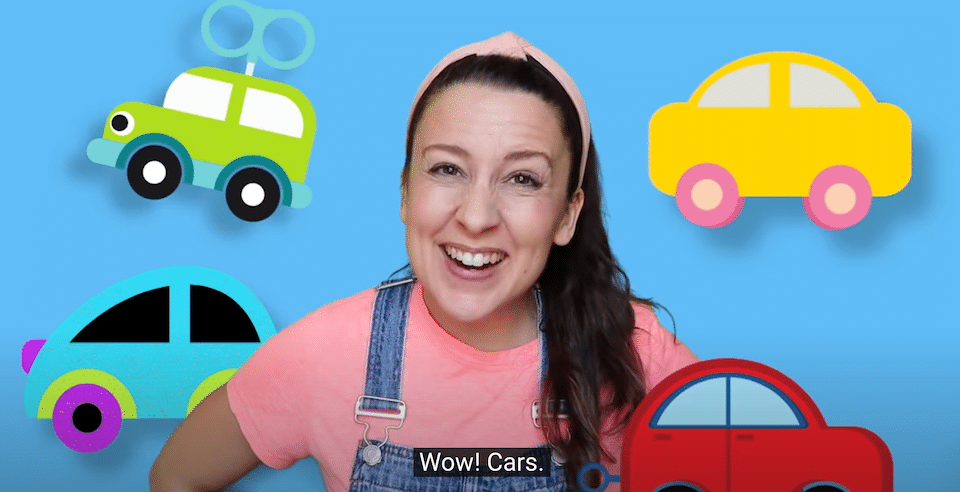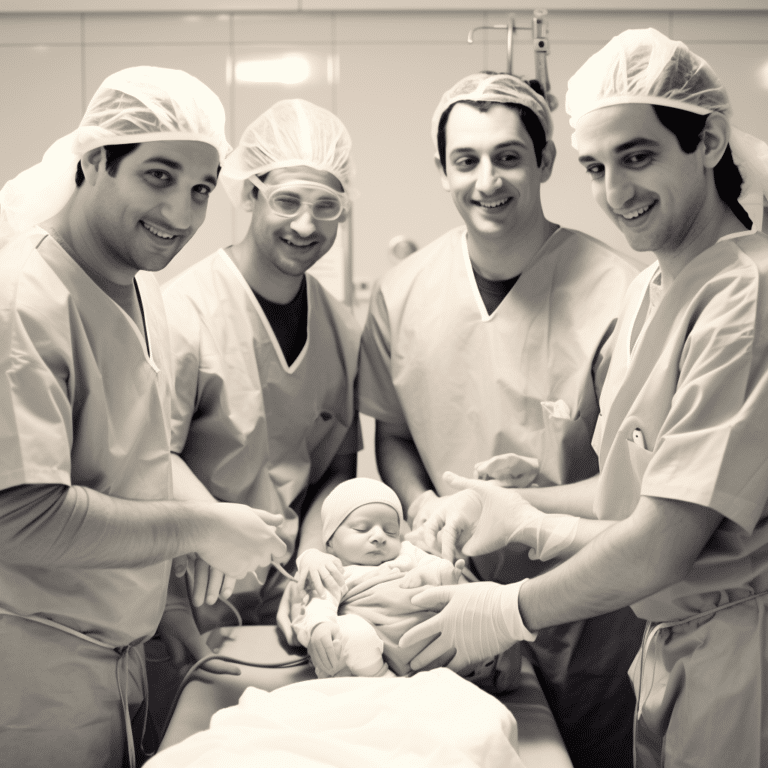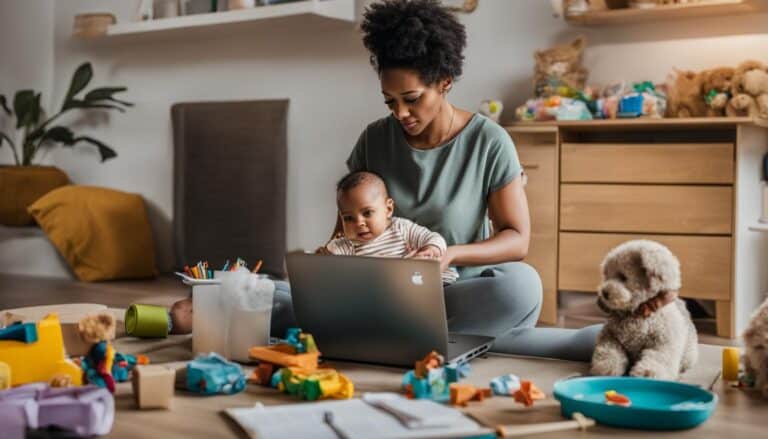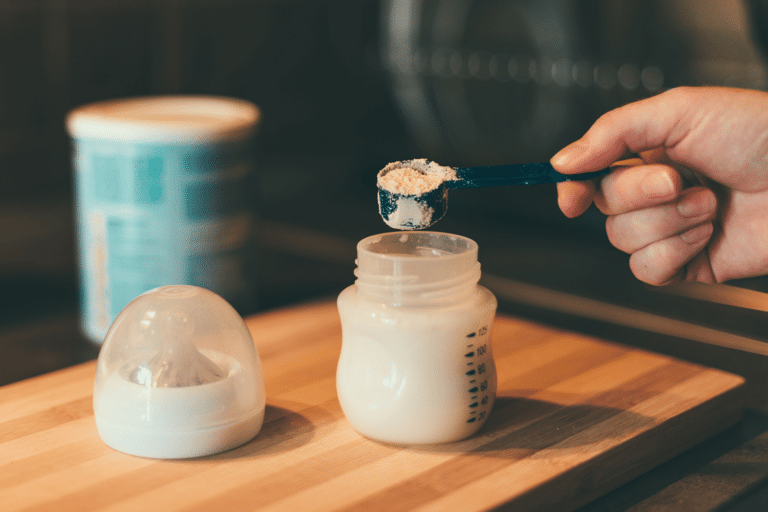Is Ms. Rachel good for Babies?
As caretakers, we are constantly in pursuit of enlightening and entertaining materials for our younglings. In the digital age, YouTube has become a one-stop shop for videos and kid’s programs. Ms. Rachel’s YouTube show is one of the most sought-after channels among babies and toddlers. But is it healthy and beneficial for them?
Who is Ms. Rachel?
Rachel Griffin Accurso, otherwise known as Ms. Rachel, is a celebrated maternal figure on the internet, having made her mark as a New York City preschool teacher turned YouTube and TikTok star. She has been instrumental in bringing joy and education to children all over the world with her band and their joint channel, “Songs for Littles.”
Her beloved project came about after her son, Thomas, was diagnosed with a speech delay. This stark realization only further motivated Accurso to do whatever she could to support him.
“When he finally said ‘mama’ at 2 years and 8 months, I had waited so long to hear that,” she recounts to Schwartz from NBC News. “As a mom, you understand how helpless it can make you feel not being able to help your child. A lot of the knowledge I’m dispensing now are things I wished I’d known when my son was younger.”
About Ms. Rachel YouTube Channel
Drawing on her master’s degree in music education from New York University, Accurso brought her dream of a viral learning experience alive with the recording studio in her one-bedroom apartment. “I needed experts to push me forward,” she says.
Related: WILL I BREAK MY BABY’S CRIB IF I GET IN
“What if there was something that could really foster language development and focused on important milestones – but slow-paced, tangible and engaging? I searched for it far and wide, but nothing ticked all the boxes.” Undeterred by this challenge, she found another path: creating the show herself. “My son needed help and I couldn’t find what I wanted; so why not make it ourselves and perhaps benefit many other children?” Accurso muses.
Is Ms. Rachel Good For Babies?
Though Ms. Rachel Accurso takes great care to ensure that her videos are suitable for young viewers, with clear mouth movements helping them develop speech, the American Academy of Pediatrics (AAP) does not recommend them for babies.
The critical aspect of a baby’s development lies in their interaction with caregivers and through engaged exploration of surroundings – from feeling different textures and smells to witnessing different sights.
Thus, Ms. Rachel’s videos ought to be better utilized as a helpful resource for parents who may feel bewildered about how best to amuse their children; the activities found on her YouTube channel are simple yet well worth trying out, although it should be kept in mind that these interactions will only require short periods of time.
What Age Group is Ms. Rachel For?
Having been made aware that Ms. Rachel’s videos may not be the best fit for infants, we must establish what age group would better appreciate them. Ms. Rachel’s library runs from babies who can already manage their hands to pre-schoolers, as stated on her YouTube channel.
Her footage aimed at younger viewers includes simple gaming and teaching about colors, words, and basic body movements like clapping and pointing. For toddlers and preschoolers, she puts together melodic songs, signing lessons, counting activities, and other instructive content likely to engage kids aged two to five.
Are Educational Videos Good for Babies?
For decades, companies have attempted to persuade parents and caregivers by emphasizing the potential cognitive boosts that come with educational toys, TV shows or videos. Despite the abundance of evidence to the contrary, it’s an alluring idea, especially when a baby’s development is of paramount importance. However, every major medical governing body—including the World Health Organization and the American Academy of Pediatrics—advise against this practice.
Related: BLOWING IN BABY’S FACE- IS IT SAFE
Though some may be tempted to speed up their child’s development with technological aids, the fact remains: allowing young children to watch educational videos does not help their growth; quite the opposite can occur.
Naturally, there may be occasions where a speech therapist or occupational therapist might recommend utilizing screens before the age of two. Still, parents should heed the professional guidance of their children’s health provider over any corporate marketing.
Is Ms. Rachel Different Compared To Other Educational Videos?
Parents who root for Ms. Rachel might be of the opinion that she distinguishes herself from other ‘baby shows’ with her direct approach to engaging children and her implementation of interactive, language-learning strategies. Many experts will likely agree with them, as Ms. Rachel’s utilization of Parentese (the oh-so-familiar parental sing-song), gestures, pauses to prompt responses, and social referencing (through nonverbal cues such as eye movements and hand motions) are all widely known to foster growth in live interactions.
However, research has yet to confirm if these same tactics prove successful when implemented through video content, with evidence actually pointing to a potential ‘video deficit’: in spite of strategies like Ms. Rachel’s eye contact, smiles, and pauses before speaking, it may not be enough to encourage learning through video alone.
Explaining Why Your Child Might Have Learnt Words From Watching Ms. Rachel
We may never be able to tell if Ms. Rachel was the one who sparked your child’s new linguistic milestones, since research is limited in its ability to uncover optimal results. Nevertheless, it’s a common phenomenon for young ones to abruptly blow up their language capacity during certain “growth spurts”. It could be a mere coincidence that these episodes appear around the same time as when they binge a particular show, or else it might have nothing to do with screen time.
Still, studies have revealed that even if tots are ambitious enough to grab a word from the TV, they find it more difficult to make use of it in different settings. Consequently, television-inspired vocabularies may not be the most practical route for effective communication.
What Can You Do to Enhance The Learning of Your Child?
In today’s world, it is increasingly common for parents to turn to “baby media” as a helpful tool. While passively turning on the TV may not help children learn new words, active engagement while they watch can make a difference.
Research has shown that when parents ask questions and interact with their child during screen time, progress can be made. By responding to the person on the screen (for example, if a character said clap, parents should demonstrate it), and emphasizing and labeling items of interest, 30-month olds have been known to pick up words as they watch.
Nevertheless, this isn’t always an adequate substitute for real life learning opportunities, and sometimes we only tune our kids in to keep them preoccupied while we take care of something else. As such, it remains important for parents to be mindful of the balance between actively teaching with baby media and providing more natural, hands-on experiences for their children.






